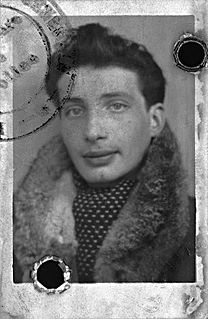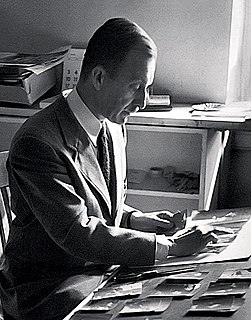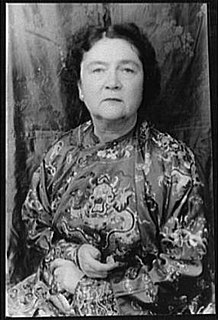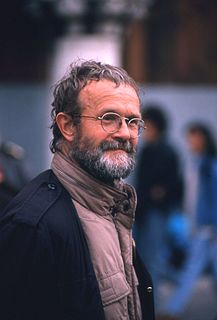A Quote by Bill Brandt
A photographer must be prepared to catch and hold on to those elements which give distinction to the subject or lend it atmosphere.
Quote Topics
Related Quotes
A photographer is a witness. He has a moral duty. Every picture must be true and honest. I believe a photographer's strength is his ability to accurately record reality. There are photographers who think they are lucky if they find unusual or special subject. But it is never the subject that is so marvelous. It is how alive and real the photographer can make it.
The personality and style of a photographer usually limits the type of subject with which he deals best. For example Cartier-Bresson is very interested in people and in travel; these things plus his precise feeling for geometrical relationships determine the type of pictures he takes best. What is of value is that a particular photographer sees the subject differently. A good picture must be a completely individual expression which intrigues the viewer and forces him to think.
Those that think that wealth is the proper thing for them cannot give up their revenues; those that seek distinction cannot give up the thought of fame; those that cleave to power cannot give the handle of it to others. While they hold their grasp of those things, they are afraid of losing them. When they let them go, they are grieved and they will not look at a single example, from which they might perceive the folly of their restless pursuits - such men are under the doom of heaven.
We are ... led to a somewhat vague distinction between what we may call "hard" data and "soft" data. This distinction is a matter of degree, and must not be pressed; but if not taken too seriously it may help to make the situation clear. I mean by "hard" data those which resist the solvent influence of critical reflection, and by "soft" data those which, under the operation of this process, become to our minds more or less doubtful.
The aura given out by a person or object is as much a part of them as their flesh. The effect that they make in space is as bound up with them as might be their colour or smell ... Therefore the painter must be as concerned with the air surrounding his subject as with the subject itself. It is through observation and perception of atmosphere that he can register the feeling that he wishes his painting to give out.
I would have liked to catch hold of sleep at least once, just as I had been resolved to catch hold of death one day, to catch hold of the wings of the angel of sleep when it came for me, to grab it with two fingers like a butterfly after sneaking up on it from behind. [...] My sleep game was practice for the grand struggle with death.
You become things, you become an atmosphere, and if you become it, which means you incorporate it within you, you can also give it back. You can put this feeling into a picture. A painter can do it. And a musician can do it and I think a photographer can do that too and that I would call the dreaming with open eyes.
Photography must seize upon this moment and hold immobile the equilibrium of it. The photographers eye is perpetually evaluating. A photographer can bring coincidence of line simply by moving his head a fraction of a millimeter. He can modify perspectives by a slight bending of the knees. By placing the camera closer to or farther from the subject, he draws a detail — and it can be subordinated, or he can be tyrannized by it.
Now the myths represent the Gods themselves and the goodness of the Gods subject always to the distinction of the speakable and the unspeakable, the revealed and the unrevealed, that which is clear and that which is hidden: since, just as the Gods have made the goods of sense common to all, but those of intellect only to the wise, so the myths state the existence of Gods to all, but who and what they are only to those who can understand.

































